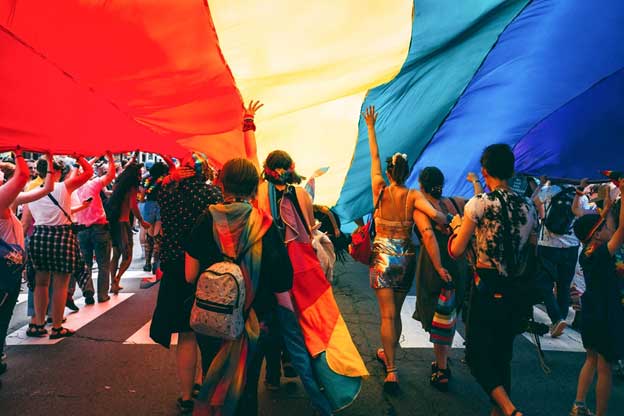
Jun 11 (IPS) – The events of this year’s PRIDE Month are showing the world the power of inclusivity. Only by pushing for acceptance and rejecting criminalization, discrimination and stigmatization can we ensure a fairer, safer future for all. We are all invited to be allies.
PRIDE has always been a protest and a commemoration as well as a celebration. The first demonstrators in New York more than fifty years ago understood PRIDE as a way to reject the shame others tried to impose on them and to honor the memory of people who had been abused and vilified.
For them, defiance and joy were not opposites; their joy was defiance. The LGBTQ+ community has refused to accept subjugation and stands in solidarity with all marginalized people.

PRIDE has always been about collective action for justice. The determination of LGBTQ+ communities and allies to ensure inclusion for all people has been at the heart of the progress made in human rights and public health in recent decades.
It is no coincidence that it was the networks of gay activists built up from the late 1960s onwards that became pioneers in the community response to HIV at the outbreak of the AIDS pandemic in the 1980s. They helped slow the spread and impact of the virus by providing peer-to-peer information about HIV and providing care and support at a time when no one else was willing to do so.
They rolled up their sleeves to defend all minorities against discrimination and violence, and they launched campaigns to overturn the laws and attitudes that violate human rights and hinder people’s access to services.
As innovations in HIV treatment and prevention expanded, it was groups led by LGBTQ+ activists, including ACT UP in the United States and the Treatment Action Campaign in South Africa, that drove the campaigns to challenge the monopoly on drug production so that anyone who needed drugs could be treated and prevented from getting access to them by HIV.
So much has been gained. At the start of the AIDS pandemic, most countries criminalized LGBTQ+ people – but today, more than two-thirds of countries do not criminalize them. Since 2019 alone, Botswana, Gabon, Angola, Bhutan, Antigua and Barbuda, Barbados, Singapore, Saint Kitts and Nevis, the Cook Islands, Mauritius and Dominica have all repealed laws that had criminalized LGBTQ+ people.
But the progress made is in danger. LGBTQ+ people are under attack, and in addition to the attacks on LGBTQ+ communities, there are also attacks on the rights of women and girls, on migrants, and on ethnic and religious minorities.
Leaders who fear their status and power sow hatred against minorities to distract from economic and political woes. They push for draconian laws and allow vigilantes to follow up their verbal abuse with physical violence.
Meanwhile, at a time when solidarity with human rights defenders is vital and urgent, financial support for civil society organizations is declining as donor countries cut spending.
We are at a pivotal moment, a crossroads: the end of AIDS as a public health threat is achievable in this decade, but progress is at risk; We can win the fight for human rights for all, but only if we fight for it together. Our collective future will be determined by what we do now. Courage and urgency in support of everyone’s human rights are essential to protect everyone’s health.
It is the people at the most difficult intersections of injustice who are leading the way. But they cannot succeed alone; they need allies, not just on their side, but also on their side. Stigma kills; solidarity saves lives.
The United Nations is clear: be proud of who you are and be proud to be an ally for the human rights of all.
Winnie Byanyima is Executive Director of UNAIDS and Under-Secretary-General of the United Nations. The link follows: https://www.unaids.org/sites/default/files/media/images/unaids-executive-director-winnie-byanyima.jpg
IPS UN Office
Follow @IPSNewsUNBureau
Follow IPS News UN Bureau on Instagram
© Inter Press Service (2024) — All rights reservedOriginal source: Inter Press Service







